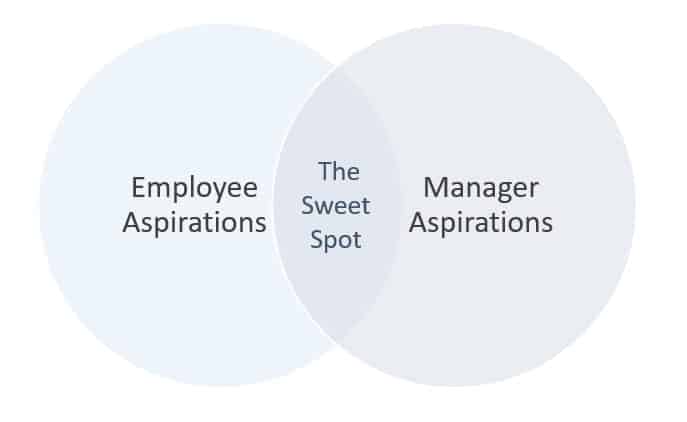10 July 2018

Managers who support the development goals of their team members and provide them with stretch opportunities and opportunities for coaching, will notice how quickly these activities can build both learning and engagement in their teams.
This is especially true in the new economy, where personal and professional development is becoming one of the most important reasons for employees to take on (and remain in) a given role. Yet, according to the CIPD Employee Outlook in 2017, almost a quarter of employees were dissatisfied or very dissatisfied with the opportunities they have been given to develop their skills in their job. Knowing that supporting development is important is one thing, actually spending time discussing and planning for development can be something else altogether.
It is important to have development conversations regularly and to do them well. Our experience working with leaders across the globe tells us that the most constructive development conversations find a way to align the individuals development goals with the organisational, business or team objectives. This could be described as the point where employees goals and expectations meet the organisations aspirations – Otherwise known as “The Sweet Spot:
Managers who conduct development conversations should try to uncover where this Sweet Spot might be. Once this has been identified it can be a powerful tool for engagement. The employee gets a better sense of how their own development contributes to the success of the organisation and deeper sense of ownership and accountability. The manager benefits from the alignment this creates and the sense that ‘we are all pulling in the same direction’. The conversation becomes not about the individual (the manager or team member) but the individual as part of the larger organisation.
So, as a manager how can you identify where this Sweet Spot might be? The following tips might be useful:
The above are just a few tips to ensure success. If you are curious in learning more about development conversations, you may be interested in our Development Conversations Leadership Workshop.
Mannaz Leadership Workshops are drawn from our established and highly rated longer programmes and are specifically designed as practical stand-alone sessions. They each include a selection of proven tools that you can use immediately to achieve real impact in your organisation.